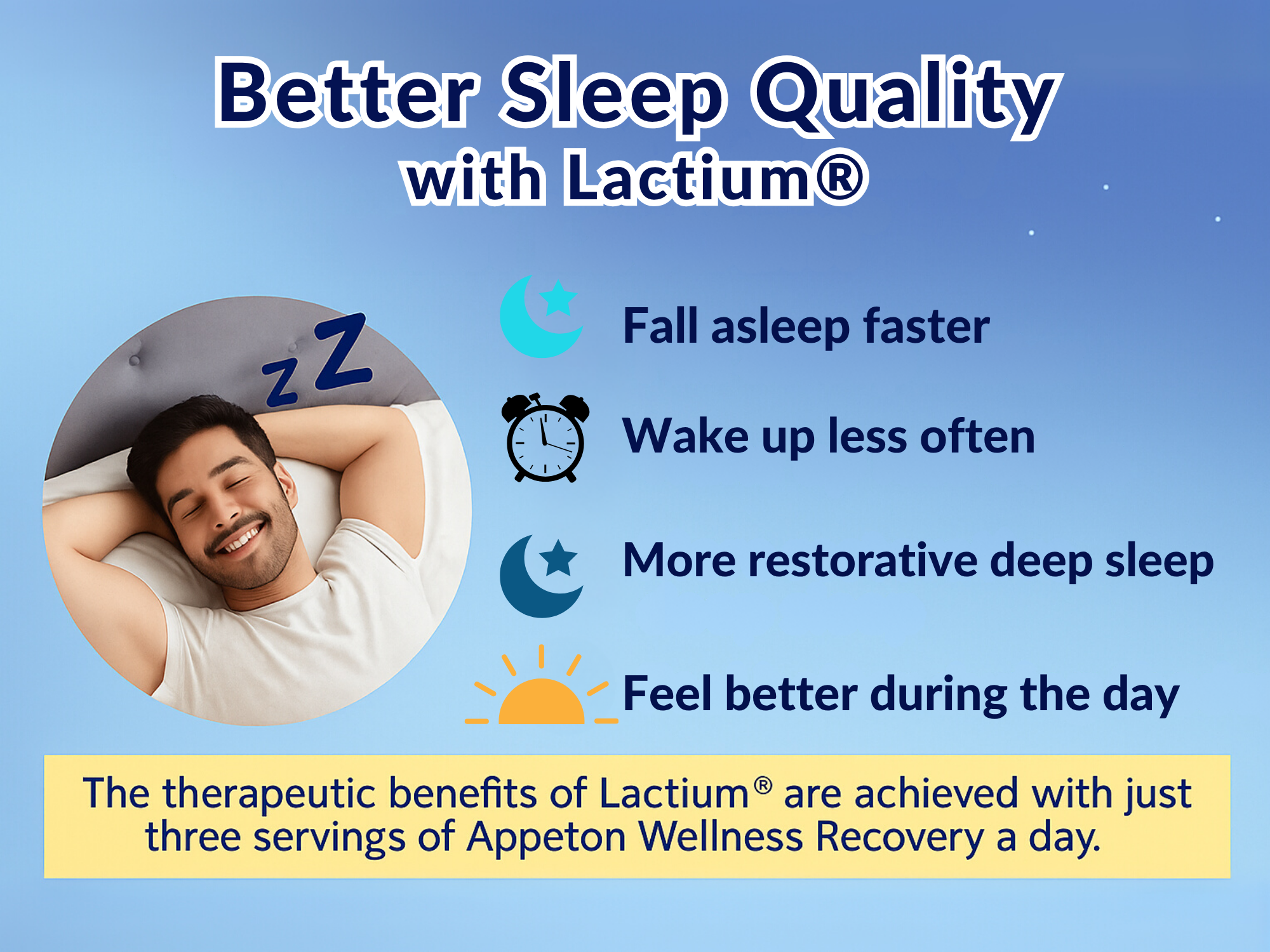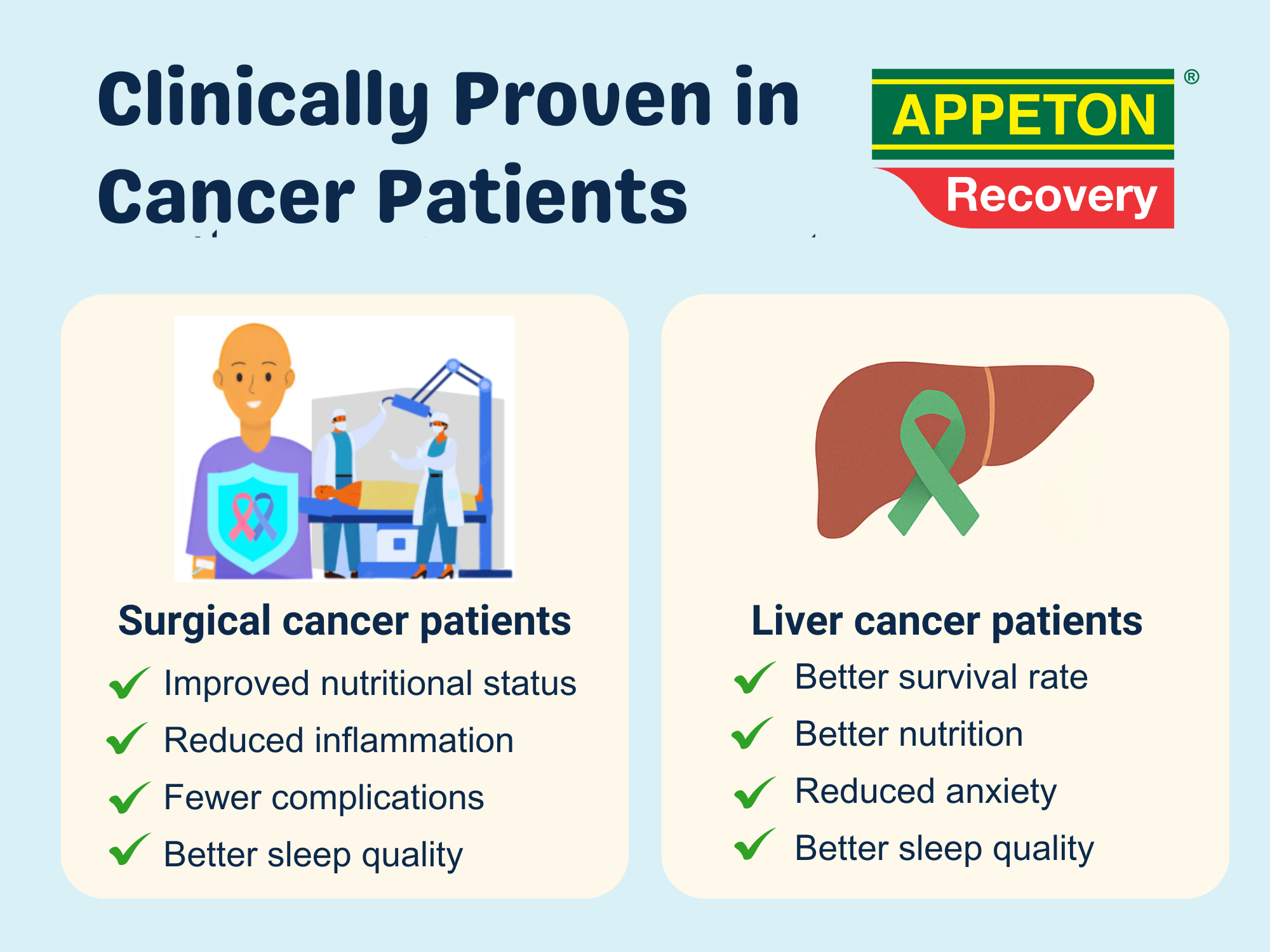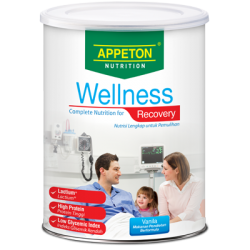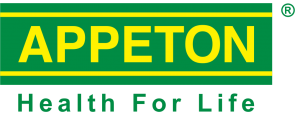Rest, Recover, Renew: Why Sleep and Nutrition Matter in Cancer Care
Watching a loved one fight cancer can be overwhelming. Between hospital visits, chemotherapy and restless nights, it’s natural to feel helpless. But beyond medical treatments, there are ways to support recovery – and two of the most powerful aspects are often overlooked: sleep and nutrition. One fuels the repair process, the other gives the body time to do its work.
For many patients, especially after surgery or chemotherapy, proper rest is hard to come by. Pain, discomfort and medication side effects can make nights restless. Yet, sleep is critical. Research1 shows that sleeping only 3-4 hours a night for just a few days can raise inflammation in the body by nearly 50%. That extra inflammation can slow wound healing, drain energy and make recovery harder.
So, what if better sleep could speed things up?
During deep sleep – which happens every 90 minutes through the night – the body releases growth hormones that repair tissues and strengthen the immune system2. The more hours of quality sleep, the more repair cycles the body can complete. If you often feel tired during the day, it may be your body’s way of telling you that you need more rest. So not getting enough sleep can slow down the healing process and even increase the risk of complications.
This is where thoughtful nutrition can make a real difference. Appeton Wellness Recovery is a complete, balanced nutrition formula that provides high protein for cell repair, combined with Lactium®—a natural milk protein clinically proven to support better sleep. Together, they help the body recover faster and stronger. Clinical studies with breast and colorectal surgery patients³, as well as liver cancer patients⁴, found that those who took Appeton Wellness Recovery experienced not just faster physical recovery, but also felt emotionally stronger and more at ease during their healing journey.


For breast or colorectal cancer patients who underwent elective surgery3, starting Appeton Wellness Recovery two weeks before the operation and continuing for 1–3 months after was shown to improve sleep, reduce inflammation, and lower the risk of complications and infections.
In another 6-months study with liver cancer patients4, those who took Appeton Wellness Recovery alongside immunotherapy lived more than twice as long on average, regained healthy weight, and improved their strength. Many also felt emotionally stronger— with 6 in 10 reporting less anxiety, and 8 in 10 enjoying better sleep.
By addressing the powerful connection between stress, sleep, and immunity, Appeton Wellness Recovery adds a valuable layer of support alongside medical treatment.
Supporting someone through cancer isn’t just about what happens in the hospital – it’s also about nurturing their body and mind when they need it most. Rest, nutrition and emotional well-being go hand in hand.
This October, as we stand with families and fighters of breast and liver cancer, let’s remember: with the right nutrition support, recovery becomes a little smoother, and hope shines a little brighter.

Learn more: Appeton Wellness Recovery
References:
- Ballesio, A., et al., (2025). Effects of Experimental Sleep Deprivation on Peripheral Inflammation: An Updated Meta-Analysis of Human Studies. Journal of sleep research, e70099. Advance online publication. https://doi.org/10.1111/jsr.70099
- David W. Carley, Sarah S. Farab,(2016).Physiology of Sleep. Diabetes Spectr; 29 (1): 5–9. https://doi.org/10.2337/diaspect.29.1.5
- Wong T.X. et. al. (2022) Effects of Perioperative Oral Nutrition Supplementation in Malaysian Patients Undergoing Elective Surgery for Breast and Colorectal Cancers-A Randomised Controlled Trial. Nutrients, 14(3):615.
- Johnson HD. Impact of Lactium-Containing Nutritional Supplement on Clinical Outcomes in Liver Cancer: A 6-Month Retrospective Analysis. Columbia Asia Bukit Rimau; 2025. Data on file, Appeton.
